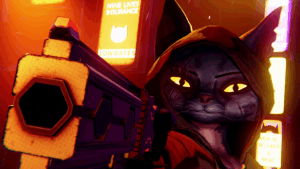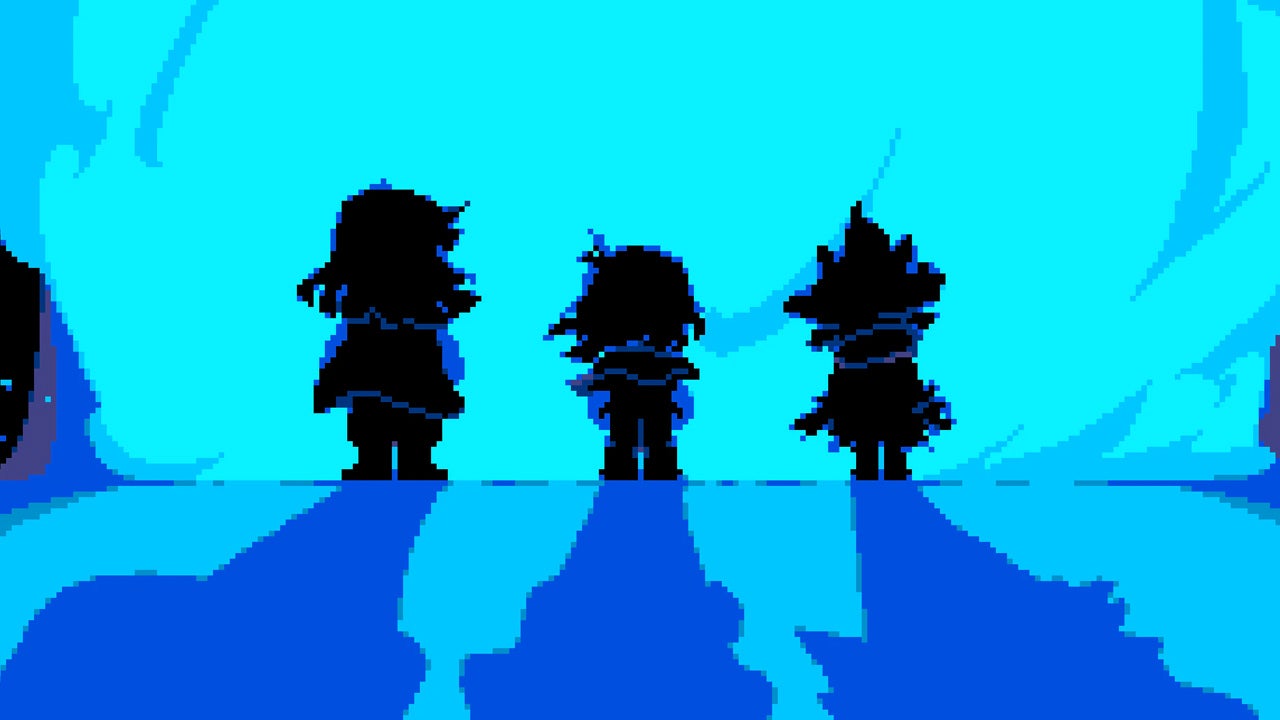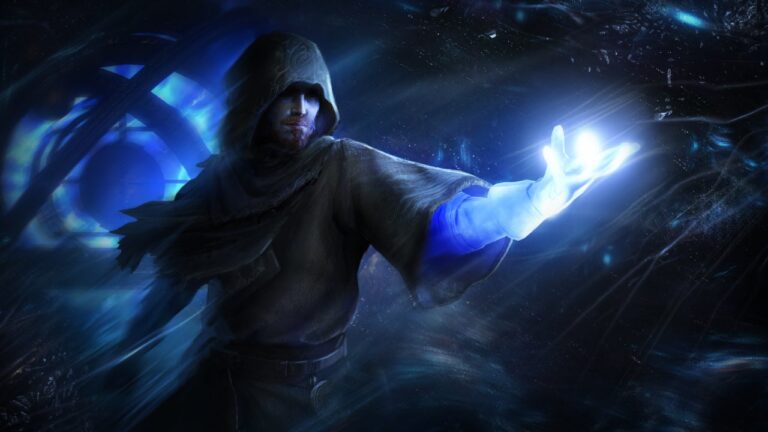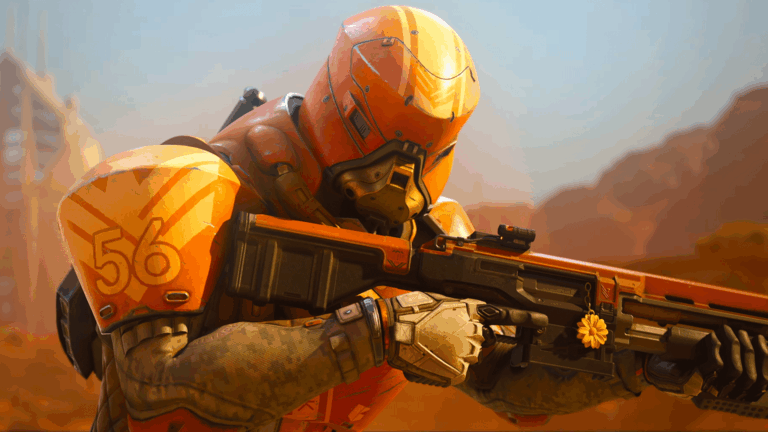An Exciting Journey Begins: From a Mysterious Survey to an Unforgettable Adventure
Almost seven years ago, on Halloween night, I woke up early to download a strange “Survey Program” created by Toby Fox, the mastermind behind Undertale. What seemed like a simple survey unexpectedly opened the door to a grand, engaging adventure that has haunted my thoughts ever since. Now, with the recent release of chapters three and four, that journey has begun to take a more concrete form. Deltarune continues the spirit of its predecessor by flipping traditional RPG expectations upside down in the most inventive ways. Its clever, heartfelt, and often absurdly funny writing, combined with an unforgettable soundtrack, makes it a truly unique experience. Despite its modest pixel art style and seemingly straightforward plot, underneath lies a world filled with mystery, beauty, and surprises. The game also explores profound questions about our connection to the characters we control, blending meta-commentary with a celebration of heroism and resilience.
From Humble Beginnings to a Rich, Expansive World
The creepy demo that started it all was only the first chapter of Deltarune. The second chapter arrived in 2021, and the latest two chapters were released just last week as part of a traditional full release. However, the story isn’t complete—more chapters are planned to come free in future updates. Whether you’re returning to the game after years or starting fresh, you’ll immediately be drawn into the story of Kris, a strange teenager caught in a bizarre world. While it shares some similarities with Undertale, Deltarune introduces new settings and mechanics that set it apart. Instead of underground monsters, you begin in a peaceful yet unremarkable hometown—though, strangely, you’re the only human in a world full of monsters. The main conflicts are humorous: staying awake in class or avoiding the awkwardness of seeing your divorced monster parents at the grocery store.
Reflections on Undertale and Its Influence
For those familiar with Undertale, it’s fun to spot familiar characters living normal lives in this parallel universe. However, I believe Deltarune excels most when it focuses on its own story rather than relying on fanservice. Initially, I was a bit disappointed to see familiar faces, but I soon realized these aren’t mere cameos. In this universe, they are ordinary townsfolk—teachers, police officers, shop owners—yet they hold their own hidden depths. The game’s menus and UI dynamically change to reflect this new realm, adding to the immersion.
Embarking on a Fantastical Quest in the Dark World
The story kicks off when Kris and a loud, brash classmate named Susie are transported into a vibrant fantasy realm straight out of an ‘80s adventure film. Here, mundane objects like pencils and bandaids become swords and armor, while forgotten classroom toys or computer accessories spring to life as obstacles called “Darkeners.” The game’s art style shines brightly in these worlds, with beautifully crafted pixel backgrounds complemented by a stunning soundtrack that captures the essence of each location.
Introducing Ralsei: The Gentle Darkener Prince
Shortly after arriving, you meet your third party member: Ralsei, a kind-hearted Darkener prince who seems to know more about you than he lets on. He speaks of cleansing dark fountains and saving the world—classic hero fare. To reach your goals, you’ll face enemies, friends, and misunderstood characters. Like Undertale, combat can be approached with violence or mercy, but the consequences are more nuanced here. Defeating enemies makes your party stronger, but sparing foes can lead to a friendlier Dark World, affecting how scenes unfold and whom you meet.
The Strategic and Witty Turn-Based Battles
The battle system is a highlight, allowing you to “Act” on your turn—persuading enemies to spare them through mercy, all while dodging complex bullet patterns in real time. This system, while seemingly simple, is kept fresh through sharp, context-aware humor. Each foe has different needs, and as you progress, battles become increasingly elaborate and amusing. For example, asking Susie to flirt with enemies, or daring her to dodge ambulance-themed bullets, creates tense yet hilarious moments. The game’s combat encourages creative tactics, from healing and item management to exploiting synergy between party members. Dodging attacks, grazing bullets to build power, and choosing the right magic all add layers of strategic depth, making each encounter exciting and unpredictable.
Exploring a Rich, Quirky World Beyond Combat
Even outside of battles, there’s a lot to discover. Walking around, talking to NPCs, and interacting with objects reveals a world brimming with humor and detail. Deltarune’s humor is delightfully bizarre—like finding a can of “Ice-E’s Cool Boys Body Spray” or encountering a dolphin attacking with internet pop-ups referencing obscure memes. These small touches enrich the experience, rewarding players who take the time to explore. Every corner hides a joke or a secret, making the game feel alive and personal. Small details, like inspecting moss or finding hidden items, often turn into ongoing gags or meaningful moments, deepening the connection to its characters and universe.
Stunning Visuals and Music That Elevate Every Moment
The game’s environments are visually striking, transforming mundane settings into fantastical landscapes—think a classroom turned into a vast forest or a computer lab into a bustling city of neon lights. The pixel art style is meticulously crafted, with expressive character portraits that evolve throughout the chapters. The soundtrack, composed by Toby Fox himself, is a masterpiece, blending catchy chiptunes with emotional melodies. From energetic battle themes to haunting melodies in darker areas, the music enhances every scene. Some sequences feature live piano performances, elevating emotional stakes and leaving a lasting impression.
Memorable Characters and Their Quirky Personalities
The cast of Deltarune is full of colorful personalities, from the well-meaning but goofy Rouxls Kaard to the enigmatic Kris and Susie. Many characters are endearing because of their silliness and distinctiveness—sometimes almost comically dumb, yet always charming. The interactions are lively, with each new chapter introducing fresh faces that continually surprise. Kris and Susie, in particular, form a compelling duo whose evolving relationship is at the heart of the story. Susie’s character growth is especially notable: she starts as a tough bully but gradually reveals depth, humor, and unexpected heroism. Their bond feels genuine and powerful, driving the narrative forward and making their journey deeply satisfying.
The Unique Meta-Storytelling and Player Experience
One of the most fascinating aspects of Deltarune is how it blurs the line between player and character. You don’t just control Kris—you embody them. The game subtly hints that Kris might have their own motives, and sometimes, you’re even forced out of the driver’s seat, experiencing moments of helplessness. This innovative mechanic adds a layer of meta-commentary on control, free will, and identity. It’s a bold storytelling choice that makes every decision feel personal and meaningful. The game’s themes of autonomy and connection resonate deeply, inviting players to ponder their own role within the story.
Looking Ahead: The Future of Deltarune
While Chapters 3 and 4 deliver intense, unpredictable experiences, they also leave many questions unanswered. Chapter 3 felt like a wild roller coaster, introducing new gameplay mechanics and surprising twists. Chapter 4 continued this trend but also brought darker, more introspective moments. The ending of Chapter 4 was particularly harrowing, leaving me eager for what’s next. Despite some slower segments and maze-like areas, the overall experience is compelling, and I can’t wait to see how Toby Fox continues to evolve this extraordinary universe.










